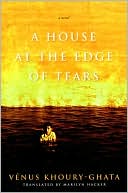Category Books
- Fiction Books & Literature
- Graphic Novels
- Horror
- Mystery & Crime
- Poetry
- Romance Books
- Science Fiction & Fantasy
- Thrillers
- Westerns
- Ages 0-2
- Ages 3-5
- Ages 6-8
- Ages 9-12
- Teens
- Children's Books
- African Americans
- Antiques & Collectibles
- Art, Architecture & Photography
- Bibles & Bible Studies
- Biography
- Business Books
- Christianity
- Computer Books & Technology Books
- Cookbooks, Food & Wine
- Crafts & Hobbies Books
- Education & Teaching
- Engineering
- Entertainment
- Foreign Languages
- Game Books
- Gay & Lesbian
- Health Books, Diet & Fitness Books
- History
- Home & Garden
- Humor Books
- Judaism & Judaica
- Law
- Medical Books
- New Age & Spirituality
- Nonfiction
- Parenting & Family
- Pets
- Philosophy
- Political Books & Current Events Books
- Psychology & Psychotherapy
- Reference
- Religion Books
- Science & Nature
- Self Improvement
- Sex & Relationships
- Social Sciences
- Sports & Adventure
- Study Guides & Test Prep
- Travel
- True Crime
- Weddings
- Women's Studies
A House at the Edge of Tears » (Translatio)

Authors: Venus Khoury-Ghata, Marilyn Hacker
ISBN-13: 9781555974343, ISBN-10: 1555974341
Format: Paperback
Publisher: Graywolf Press
Date Published: November 2005
Edition: Translatio
Author Biography: Venus Khoury-Ghata
Vénus Khoury-Ghata’s She Says, which was also translated by Marilyn Hacker, was recently published in the United States a named a finalist for the National Book Critics Circle Award for Poetry.
Book Synopsis
In the city of Beirut, five shabby dwellings circle a courtyard with a pomegranate tree weeping blood red fruit. The residents hear screams in the night as a boy is tossed out into the street by his father—a punishment for masturbating in his sleep. A crime not worthy of the punishment: the neighbors gossip and decide that he must have tried to rape his sisters. “Small-boned with long, silky lashes, no one but the devil could camouflage evil so seductively.” The poems he writes are perhaps an even greater crime to his father, but ultimately a gift to his eldest sister, who narrates their story with a combination of brutal truth and stunning prose. As her brother becomes more and more lost to his family and to himself, we also learn of a Contessa who teaches tango, a family who spends every Sunday in search of buried treasure, and the miracle of a weeping Madonna statue that cries when human tears run dry.
In this harrowing and mesmerizing novel, celebrated novelist and poet, Khoury-Ghata, presents the disintegration of a family and a country—both ruled by a fury fueled by fear.
Publishers Weekly
Khoury-Ghata, a longtime Lebanese exile living in Paris, is the author of 16 novels and 13 collections of poems in French (including the NBCC finalist for poetry She Says, also translated by Hacker). This self-avowedly autobiographical first-person novel is set in a mostly Christian village outside civil war-era Beirut. It centers on the travails of the narrator's brother, whose masturbation, once discovered, drives the father, a former monk, into rages. (The entire family goes unnamed.) Beating and terrorizing his son viciously, the father ultimately has the boy committed to an insane asylum. To cover up, the father does not quell the rumor that the boy tried to rape one of his sisters. The narrator and her sisters are then sent to a small, devout village in northern Lebanon to live with their aunt and uncle, a coffin maker, and the contact with their parents and brother from then on is intermittent and difficult. The book unfolds in clotted, repetitive lyric bursts, but Khoury-Ghata paints an effectively stylized picture of tyrannical psychosis as it destroys a family, informed by the larger destruction of Lebanese society during the protracted civil war. (Nov.) Copyright 2005 Reed Business Information.
Table of Contents
Subjects
 Fiction Subjects
Fiction Subjects  Politics & Social Issues - Fiction
Politics & Social Issues - FictionFiction Books & Literature
 War & Military Fiction
War & Military Fiction  Civil Wars - Fiction
Civil Wars - Fiction
